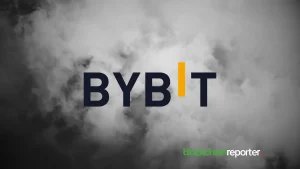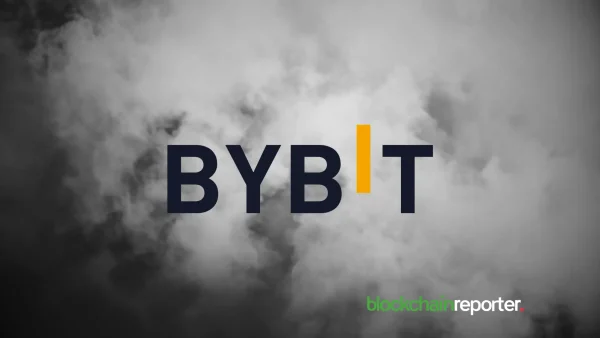
- 1. What is Decentralized Science (DeSci)?
- 2. Distributed Computing and Scientific Research
- 3. Peer-to-Peer Networks and Open Science
- 4. Data Integrity and Transparency
- 5. Collaboration and Academic Publishing
- 6. Cryptography and Distributed Ledger Technology
- 7. Smart Contracts and Collaborative Research
- 8. Consensus Algorithms and Peer Review System
- 9. Open Access Publishing and Scientific Data Sharing
- 10. Decentralized Networks and Blockchain Technology
- 11. Smart Contracts and Funding Mechanisms
- 12. Final Thought
Decentralized Science (DeSci) represents a paradigm shift in the field of scientific research. It supports blockchain technology and decentralized computing to redefine traditional research practices. In this article, you will explore the various aspects of DeSci and its potential to revolutionize scientific research across different domains.
What is Decentralized Science (DeSci)?
Desci, or decentralized science, uses Web3 technologies to change how scientists work. Traditional science (TradSci) shares knowledge through centralized institutions. However, DeSci uses decentralized methods. Its goals are to make scientific data more accessible, open peer review, and global researcher collaboration. DeSci ensures accurate, long-lasting scientific records and lowers entry barriers using blockchain technology. This new method allows scientists to conduct more open, efficient, and inclusive research.
Distributed Computing and Scientific Research
Distributed computing helps DeSci networks process and verify scientific data. Centralized computer resources, which are wasteful and expensive, are essential to traditional scientific research. However, distributed computing lets researchers process and analyze data faster using decentralized networks’ computing power. This distributed approach makes scientific research infrastructure more flexible and reliable, making large data analysis and simulation easier in computational biology, climate science, and genomics.
Peer-to-Peer Networks and Open Science
Peer-to-peer (P2P) networks allow researchers to collaborate directly without middlemen, making DeSci possible. Traditional scientific research uses centralized platforms or academic journals to communicate, which can slow down or hinder collaboration. P2P networks in DeSci simplify data sharing, feedback, and real-time collaboration. They support open science principles like reproducibility, welcome, and openness. Researchers can use peer-to-peer networks to access global resources and experts. This accelerates scientific discovery and innovation.
Data Integrity and Transparency
Data integrity is crucial in scientific research because it verifies results. In traditional research, data loss, tampering, and manipulation can compromise data integrity. DeSci uses blockchain technology to store scientific data in a decentralized, unchangeable ledger. Blockchain securely and publicly records all data transactions, improving data integrity and availability, promoting scientific research trust and reproducibility.
Collaboration and Academic Publishing
Collaboration helps researchers from different fields share knowledge in DeSci. Academic publishing relies on centralized publishing houses and subscriptions, making it harder to spread scientific knowledge. DeSci platforms allow researchers to publish directly on decentralized platforms for the entire research community. Academic publication’s openness facilitates collaboration, accelerates innovation, and promotes knowledge sharing.
Cryptography and Distributed Ledger Technology
DeSci relies on cryptography to secure scientific data and transactions. Centralized databases and third-party middlemen can compromise data security and privacy in some research workflows. To protect scientific data and transactions on decentralized networks, DeSci uses encryption, digital signatures, and zero-knowledge proofs. Cryptography and distributed ledger technology (DLT) improve scientific research infrastructure security, protecting private data from unauthorized access.
Smart Contracts and Collaborative Research
Directly written into code, smart contracts execute themselves. Smart contracts in DeSci automate and enforce agreements, making project collaboration easier for researchers, funders, and other stakeholders. Past research funding methods may have had slow approval processes and extra work for administrators, causing delays and waste. DeSci platforms help researchers collaborate efficiently by automatically handling funding, research grants, and intellectual property rights with smart contracts.
Consensus Algorithms and Peer Review System
Consensus algorithms help decentralized networks verify scientific data and transactions in DeSci. Centralized and confusing peer review processes can lead to biases and publication delays in traditional systems. DeSci uses consensus algorithms for open, checkable peer review. It ensures scientific publication quality and integrity. DeSci improves scientific research credibility by including many reviewers in the consensus process.
Open Access Publishing and Scientific Data Sharing
DeSci relies on open access publishing to allow anyone to read and use scientific literature and data. Traditional publishing models restrict research access with paywalls and subscriptions. This restricts knowledge sharing. DeSci platforms allow researchers to publish their work on decentralized platforms that anyone with an internet connection can access. With knowledge available to all, sharing scientific data is easier. This lets researchers freely share and build on each other’s work. DeSci accelerates scientific discovery and facilitates cross-disciplinary collaboration by encouraging open access publishing and data sharing.
Decentralized Networks and Blockchain Technology
Decentralized networks let peers communicate, store data, and compute in DeSci. Traditional researchers use centralized servers and databases that can be hacked, censored, or fail. DeSci creates secure scientific research platforms using decentralized networks. DeSci improves security, reliability, and access for researchers worldwide by spreading data and computation across nodes. Blockchain technology enables open, unchangeable scientific transaction ledgers.
Smart Contracts and Funding Mechanisms
Directly written into code, smart contracts execute themselves. Automation and enforcement of smart contracts protect DeSci research funding, data sharing, and IP rights. Complex bureaucratic steps and centralized middlemen slow down and waste time in traditional research funding methods. Smart contracts help DeSci automate grant distribution, make funding easier, and distribute resources fairly. Automating research agreements with smart contracts makes scientific research funding more efficient, clear, and accountable.
Final Thought
Decentralized Science (DeSci) revolutionizes scientific research using blockchain, distributed computing, and decentralized networks. DeSci accelerates scientific discovery and fosters new ideas in many fields through collaboration, openness, and accessibility. As it grows, DeSci could empower researchers, expand science, and solve some of the world’s biggest problems. Scientific research has a brighter future as technology improves and more people use decentralized networks.
Frequently Asked Questions
What is Decentralized Science (DeSci)?
Decentralized Science (DeSci) leverages Web3 technologies like blockchain and distributed computing to transform scientific research. It aims to make data more accessible, enhance peer review, and foster global collaboration by decentralizing traditional research practices, thus increasing transparency and efficiency in scientific workflows.
How does distributed computing support DeSci?
Distributed computing enhances DeSci by enabling faster processing and analysis of scientific data using decentralized networks. This method eliminates the need for centralized, expensive computing resources and makes large-scale data analysis and simulations in fields like genomics and climate science more flexible and reliable.
What role do peer-to-peer (P2P) networks play in DeSci?
P2P networks facilitate direct collaboration among researchers without relying on centralized platforms. These networks streamline data sharing, real-time feedback, and collaboration, supporting the principles of open science and accelerating innovation and discovery.
How does blockchain technology improve data integrity in DeSci?
Blockchain provides a decentralized, immutable ledger for storing scientific data, ensuring data integrity by preventing tampering, loss, or manipulation. This technology also improves trust in scientific research by making data publicly accessible and verifiable.








